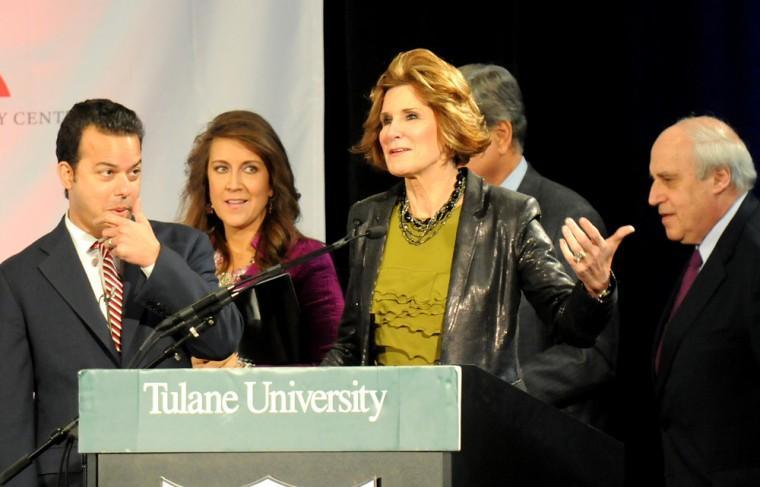Some of Washington’s top political leaders and strategists convened Thursday at Tulane University for the Bipartisan Policy Center’s Fourth Annual Political Summit to analyze this year’s election and scrutinize what the future might hold for bipartisanship.
“It’s not about Republicans or Democrats. It’s about we’re all in this together,” said BPC senior fellow Trent Lott.
The Summit hosted many distinguished guests, including the event’s co-hosts James Carville, an analyst for the Obama administration, and Mary Matalin, whose political experience includes working with the Reagan and both Bush administrations.
Although many labeled the economy as the election’s primary focus, the Summit’s audience was largely focused on social issues, which are some of the most polarizing issues in today’s political sphere.
“One of the most important things we can do is realize that everybody has a valuable perspective,” said Southern Company CEO Tom Fanning. “Don’t reject points of view, but look at how to make them work.”
The problem, according to speakers at the Summit, is politicians aren’t working together, and both parties are to blame.
“Policymakers who don’t understand business are not confined to the Democratic party,” said former Sen. Robert F. Bennett. “The Tea Party is the ultimate great diversion from the real issues. The things they are the most focused on are things that don’t matter.”
One audience member, in a question to the panelists, said the secession petitions being filed across the country are a sign that citizens don’t want to work together or don’t think bipartisanship is possible.
“The day we stop fighting over big issues is the day we stop caring. But that doesn’t make bipartisanship impossible,” Matalin said.
Although the U.S.’s demographic is changing, people should accept that this isn’t about groups looking for a hand-out. These groups represent what America is now, said North Star Opinion Research President Whit Ayres.
“Every month, 50,000 Hispanics become eligible to vote. That will continue for the next 20 years,” Ayres said.
Hispanics and women are two of many minorities whose representation is on the rise.
According to the Summit’s audience and speakers, the big question is if politicians can work together without alienating their key voters.










